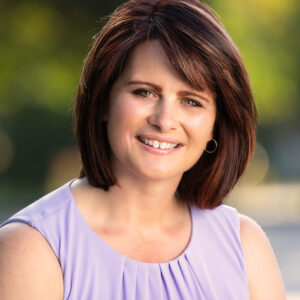
Good Vibrations: Music and Well-Being
Lifelong engagement in music has benefits in many areas of life, including our physical, psychological, spiritual, and social well-being. Being more intentional in how we use music in our everyday lives can enhance these benefits. Board-certified music therapist Dr. Heather Wagner will share how to harness the potential of music in your life and to improve your well-being. This presentation will include both information and music experiences. No musical skill is necessary, just an appreciation for music!
Heather Wagner, PhD, MT-BC is a music therapy educator, clinician, and supervisor with over 25 years of experience. She is an assistant professor and coordinator of the music therapy program at Southern Connecticut State University, and adjuncts for the master’s program at the University of Chulalongkorn in Bangkok, Thailand. She has extensive clinical experience with children and adults in medical, rehabilitation, and mental health settings, focusing on integrative approach to health and recovery. Heather is a fellow of the Association for Music and Imagery and is a trainer of the Bonny Method of Guided Imagery and Music. She has a long history of service to the American Music Therapy Association both nationally and regionally. Her leadership of the Connecticut Music Therapy State Task Force resulted in legislation in 2023 for state licensing of music therapists. Heather’s research and scholarly efforts currently focus on music therapy and pain, trauma-informed practice, resilience, and self-determination theory.
Speaker Summary
Music therapy professor and licensed clinical music therapist Heather Wagner took the group through an enlightening and stimulating session on the power of music to enhance your life by impacting you physically, emotionally and psychologically, with a goal of helping people use music intentionally to enhance their well-being. She noted the universality of music and how all people, all cultures and all times have had musical behaviors. She then went into a brief discussion of how music impacts the brain in multiple areas, which helps explain the many ways music can be used to help with therapies for many health and wellness problems.
Heather talked about the physiological, chemical, physical, and emotional responses that music generates. To demonstrate some of these responses, she played different types of music (quiet/sedative, stimulative and emotional) that helped us experience the responses to different styles of music. Of note was watching the involuntary toe-tapping response to the stimulative piece throughout the room as soon as she played it.
Heather emphasized how your music can be especially impactful. Music that reflects your preferences and that is especially relevant in your life for any number of reasons can be particularly powerful in impacting your responses to music. So, your personal music can be especially useful in a range of treatment/wellness situations. She also noted how music contributes to your identity, with what you liked/listened to between the formative years of 16-25 is especially salient and helps tell your life story.
Wagner then shared the definition of music therapy in a clinical context, the 4 types of music therapy methods and how it is/can be an alternative to more traditional talk therapy to meet individual needs. She also discussed her work to elevate the discipline including licensing of music therapists in CT and the challenges of getting insurance funding as a treatment. Throughout her talk, Heather gave powerful examples of how music can play a role in the treatment of many conditions including strokes, comas, end-of-life, dementia, and Alzheimers, as well as dealing with psychological/emotional conditions.
During the Q&A session, Heather shared thoughts on how you can intentionally use music in your life via active music making and music listening. She closed with thoughts on how you can write your own “audiobiography” to determine what music tells the story of your life. Anyone who would like Heather’s slides on these two topics can contact Frank DeLeo for copies of them.
